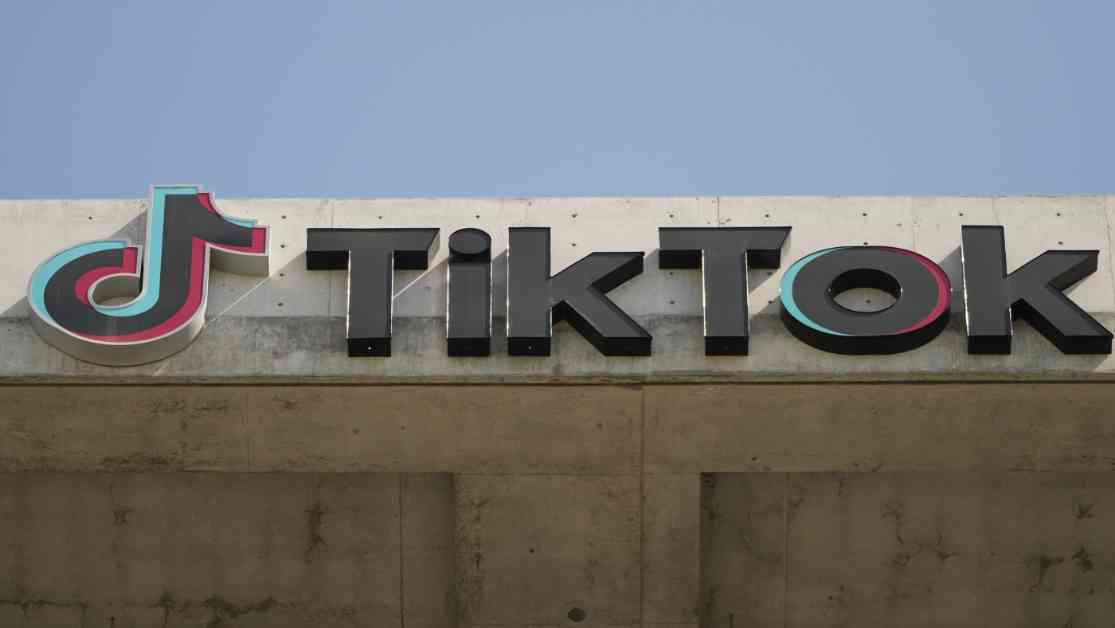TikTok, the popular social media platform known for its short-form videos, is currently embroiled in a legal battle for its survival in the United States. The app is facing the threat of a ban due to concerns over national security and its ties to its China-based parent company, ByteDance. In a recent court filing, TikTok argued that the law seeking to ban the app represents “the most sweeping speech restriction in the country’s history,” setting the stage for a crucial legal showdown.
TikTok’s Legal Battle
The latest court filing from TikTok is part of a lawsuit aimed at blocking a law that would force the app to divest from ByteDance or face closure of its American operations. The company’s legal team is set to present oral arguments in front of a federal appeals court in Washington on September 16, where they will seek to halt the law from taking effect. The Justice Department, on the other hand, has defended the law signed by President Biden in April on national security grounds, citing concerns that TikTok could be used by China to disseminate propaganda and collect personal information from American users.
According to TikTok’s attorneys, the U.S. government’s fears are speculative and lack concrete evidence. They argue that the government has wrongly singled out TikTok and failed to prove any Chinese control over the app. The ongoing legal battle has brought to light concerns about the app’s algorithm, which plays a crucial role in determining the content seen by users. While TikTok claims that the algorithm used in the U.S. is overseen by a Texas-based company and isolated from Chinese control, the Justice Department disputes this assertion, raising questions about the app’s security and potential vulnerabilities.
The Failed Deal with the White House
In a revealing submission attached to TikTok’s court filing, details emerged about a nearly reached agreement with the White House that ultimately fell through. William Farrell, an executive overseeing data security at TikTok, recounted his efforts to secure a national security agreement with top White House officials in August 2022. Despite working on multiple drafts of the agreement and engaging in settlement talks with the Justice Department, the deal eventually collapsed as China hawks within the administration pushed for a tougher stance on the app.
The White House’s decision to issue an ultimatum to TikTok—separate from ByteDance or face closure—highlighted the challenges the company faces in navigating the complex political landscape. Fully divesting from ByteDance, TikTok argues, would be detrimental to its global operations and could result in commercial failure. With the ban set to take effect in January 2025, TikTok is racing against time to find a resolution that would allow it to continue operating in the U.S. market.
The Future of TikTok
As TikTok fights for its survival in the face of a potential ban, the company is exploring various options to secure its future. Divesting from ByteDance remains a contentious issue, with TikTok’s lawyers arguing that such a move would be impractical and could jeopardize the app’s success on a global scale. Despite the challenges and uncertainties surrounding its legal battle, TikTok remains committed to defending its right to operate in the U.S. and provide a platform for millions of users to create and share content.
In the coming months, TikTok will continue to engage in legal proceedings and negotiations with the U.S. government in a bid to secure its place in the American market. The outcome of the legal battle will not only impact TikTok’s future but also raise important questions about free speech, national security, and the regulation of social media platforms. As the deadline for the ban approaches, all eyes are on TikTok as it navigates a critical juncture in its history.



























